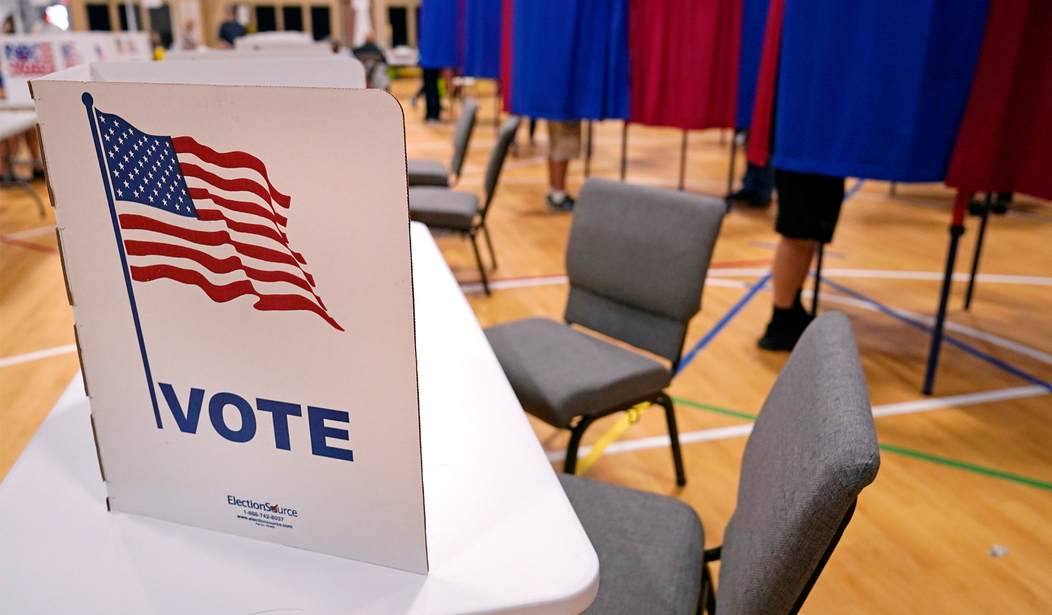Unlike past elections where certain factors, issues or problems clearly stand out when explaining results, analysis of these midterms feels like assembling a jigsaw puzzle: lots of parts, no clear picture of what happened or what’s coming. Here are the pieces I see at this point:
No. 1: There is a big disconnect between what people say matters to them and how they voted. For months, Americans have told pollsters they were most concerned about inflation, crime and illegal immigration. And then they voted for candidates who will give them more of the same.
No. 2: Abortion was a big winner. That was the No. 1 issue for Pennsylvanians who voted for John Fetterman. Michigan, California and Vermont put virtually unlimited abortion rights into their constitutions. Montanans rejected a ballot proposal that would have required medical care for babies that survive abortions. Ironically, the success of state abortion initiatives reinforces the primary point of the Supreme Court’s decision in Dobbs v. Jackson Women’s Health Organization: that abortion should be governed by state, not federal, law.
No. 3: Early voting is problematic. Almost 700,000 people voted in Pennsylvania before Fetterman’s disastrous debate performance. Opponent Dr. Mehmet Oz began gaining momentum thereafter. Historically, plenty of important information emerges as campaign seasons end. It matters when voters don’t have access to it before they cast their votes.
No. 4: There’s a theme emerging here: lack of information; lack of engagement. The Democratic Party is deliberately running candidates who are empty shells, absent from (or disastrous on) the campaign trail and/or demonstrably incompetent.
Recommended
It works. Joe Biden won in 2020, as did Fetterman, Katie Hobbs, David Scott and Kathy Hochul this week. (Hobbs refused to debate opponent Kari Lake; New York Magazine’s Intelligencer described her campaign as “lackluster.” Scott wasn’t heard from for the last few weeks of the campaign at all. Fetterman’s afflictions are well known. And then there’s former Pennsylvania Rep. Anthony DeLuca, who won in a landslide despite having died last month.)
This suggests three things: First, Democrat voters aren’t voting so much for a candidate as they are voting against another one; second, national party leadership is keeping most issues off the ballot; and third, the real power will rest not in the hands of the elected mouthpieces but in those pulling their strings behind the scenes.
No. 5: It’s not just the message; it’s the messenger. Ron DeSantis’ victory in Florida (and J.D. Vance’s in Ohio) proves that it is not only possible but politically advantageous for conservative candidates to take strong, principled stands. When they do, they can succeed with a broad spectrum of constituencies, leading to actual (as opposed to illusory) red waves. This is no “electable” RINO pablum, either. On “America First” messaging, as well as state sovereignty, parents’ rights and economic vitality, DeSantis is Donald Trump without the baggage.
Trump’s policies as president were immeasurably superior to those of the present administration. Trump continues to draw tens of thousands to his rallies, and he is at his best when his focus is on the issues that concern huge swaths of Americans: crime, illegal immigration, the economy, inflation. But when he attributes a candidate’s success or failure to loyalty to him personally, the message falls flat. His jabs at failed Republican Senate candidates Don Bolduc and Joe O’Dea are examples. This self-absorption is mildly amusing when Trump’s candidates win. But Tuesday has even diehard Trump supporters rethinking the future. Support within the MAGAverse on Twitter was shifting toward DeSantis even before the implosion of Republicans’ midterm hopes. Now the sentiment is spreading that DeSantis’ approach worked; Trump’s didn’t.
Odds are Trump will be announcing his candidacy for the presidency in 2024 next week. A Trump-DeSantis ticket presents interesting possibilities. But if Trump thinks he’s going to parlay “Ron DeSanctimonious”-style barbs into a preordained anointing as nominee, I think he’s mistaken. Trump already faces powerful headwinds from every institution controlled by the Left: the Deep State, the media, academia, woke CEOs, Hollywood. If he fragments his own base into chunks, he’ll go down and take the party with him. It would be an unforced error of catastrophic proportions to hand such a victory to the Left.
No. 6: As the saying goes, politics is downstream of culture. Americans now realize that they’re fighting a battle against institutions that are shaping (and corroding) our culture. Pushback against policies implemented by leftist school boards is a good start. Next, higher education should be called to account. Far too many of our young people leave college miseducated and indoctrinated. Days before the midterms, The Nation predicted that Gen Z would deliver for the Democrats. Post-election data reveals the truth of that. If the next generation believes in collectivism and censorship, winning this or that odd election is just bailing water.
No. 7: State governments are more important than ever. There is a huge (and growing) divide in this country. We have fewer shared values and lack a consensus about the kind of country we want to live in. Blue voters elect people who defend unlimited abortion and infanticide, crime, homelessness, drug abuse, open borders, high taxes, inflation, censorship, pornography in schools and the chemical castration and surgical mutilation of the youth. Red voters want individual liberties, free speech, school choice, parental rights, age-appropriate curricula, clean streets, reduced crime, firm law enforcement, secure borders, a strong economy and low taxes. These views are irreconcilable. More Americans may find themselves relocating to states more hospitable to their worldview.
No 8: Finally, smaller federal government is critical. It’s one thing for New Yorkers, Illinoisans, Pennsylvanians or Californians to elect corrupt or incompetent politicians to state leadership positions; it’s another thing altogether when they’re sent to Congress and foisted upon the rest of us. The focus of the Republican Party moving forward needs to be shrinking the size of the federal government, not just gaining control of it.

























Join the conversation as a VIP Member